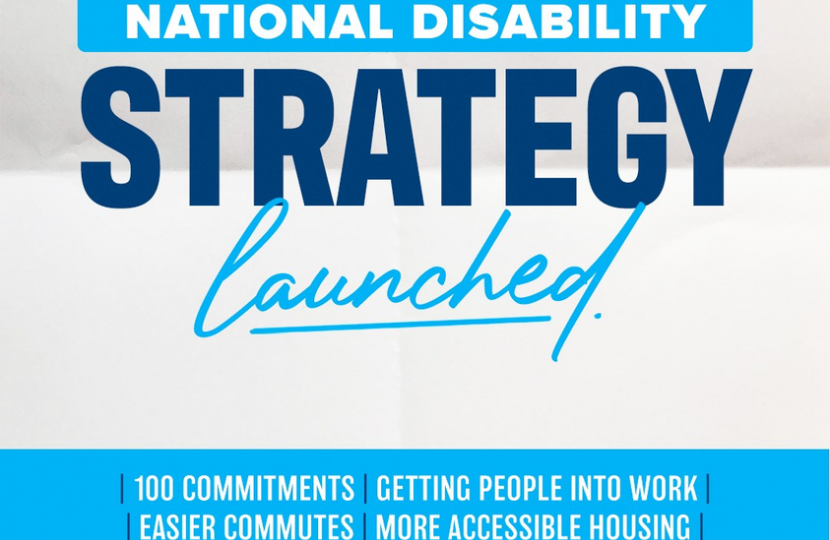
Richard has welcomed the news that disabled people are set to benefit from plans to upgrade job support and opportunities, housing and transport as part of a new National Disability Strategy
The strategy sets out 100 immediate commitments supported by £1.6bn of funding alongside an ambitious agenda for future reform. Measures include improving accessibility of homes, £300m investment in support for children with special educational needs and disabilities in schools and an online work passport to help disabled students move seamlessly from education to work. There are also plans to consult on disability workforce reporting for businesses with more than 250 staff.
MP for North East Bedfordshire, Richard Fuller, said:
Everyone should be able to participate fully and freely in our society, but many disabled people feel held back by a lack of opportunity and accessibility.
The National Disability Strategy – which includes 100 immediate commitments including improving accessibility of homes, investing £300 million to support young people with special educational needs and disabilities in schools, piloting an online work passport to help smooth the transition into employment, and consulting on introducing disability workforce reporting for large businesses - will deliver lasting change for people with disabilities, levelling up opportunity and improving their everyday lives.
The strategy is focused on improving inclusion in the workplace, tackling the disability employment gap – currently at 28.6% - and making sure children with special educational needs and disabilities are at the heart of the strategy, including:
- Consulting on introducing workforce reporting for businesses with more than 250 staff on the number of disabled people. A move designed to improve inclusive practice across the UK’s biggest employers and builds on existing gender reporting requirements
-
Increasing the number of disabled people employed by MI5, MI6, GCHQ, the Reservists and the civilian military by 2030. MI6 has set an interim target of 9% by 2025.
-
Launching a new online advice hub available to both disabled people and employers, which provides information and advice on disability discrimination in the workplace, flexible working and rights and obligations around reasonable adjustments. For the first time, the one stop shop will make it easier for disabled people to navigate the workplace.
- Investing £300 million to create places, improve existing provision in schools and make accessibility adaptations for children and young people with Special Educational Needs and Disabilities.
To make sure disabled people can live in homes adapted to their needs, we’re taking action to:
-
Raise the accessibility requirements for new homes and adapt existing homes using the £573 million Disabled Facilities Grant to make changes like widening doors, installing ramps, fitting stair lifts or installing a downstairs bathroom.
-
Mandating that 10% of homes built through the £11.5 billion Affordable Homes Programme 2021-26 will be for supported housing, boosting availability of good homes for those with additional needs. This target is designed to make more homes available to people with additional needs.
The strategy outlines new technology making rail journeys easier and more accessible including:
- Enabling disabled passengers to contact staff from their seat on the train with the new support in place by end of March 2022, with the Department for Transport supporting innovative projects that will improve communication for disabled passengers and others with reduced mobility on rail services. Projects will be supported with between £50k and £400k and will use new technology to make using the railways easier and more accessible.
The Disability Strategy also covers a range of other areas including access to justice, culture and the arts. It marks the first cross-government endeavour to improve disabled people’s everyday lives with legislation, policy and funding from across all corners of government. To read the strategy, please visit this page.
